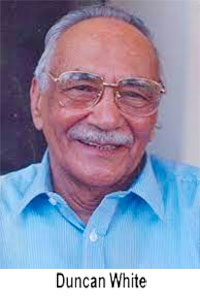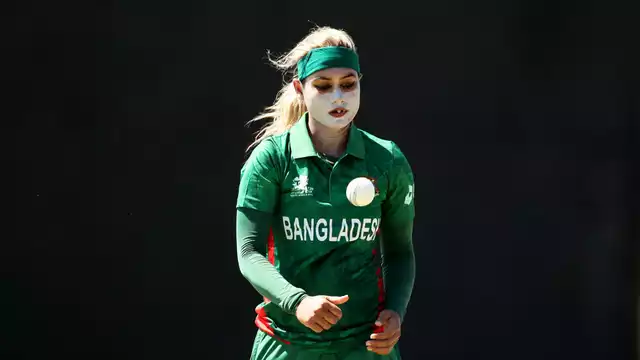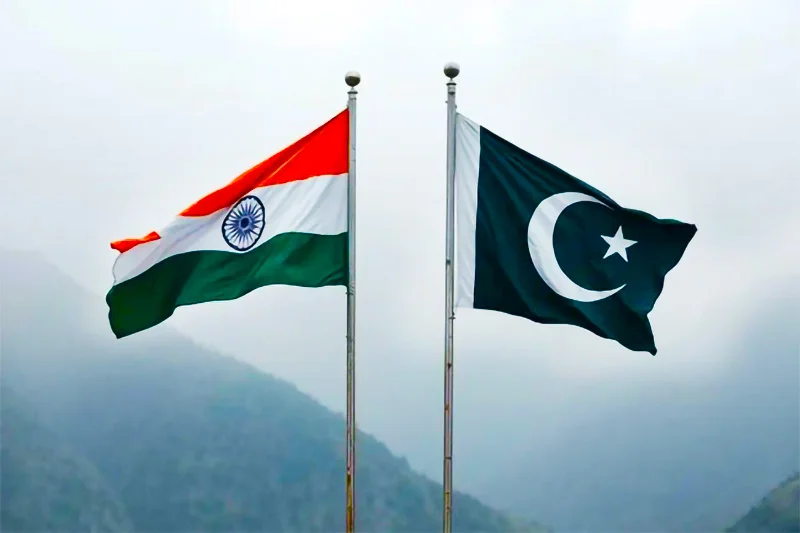Sports
Remembering the country’s first Olympic medallist Duncan White

Duncan White preparing the starting blocks.
BARRIER BREAKERS
During this Olympic year it is pertinent to remember one of country’s greatest athletes Major Duncan White on his 23rd death anniversary (July 3). On his way to success, he had to glide over 10 barriers and not break them!
Duncan White was born on the 1st of March 1918 at Lathpandura a rural village 2km from Baduraliya in the Kalutara District
His early education was at Trinity College Kandy. He was the captain of athletics in 1936 when Trinity College won the John Tarbat Challenge cup and the Jefferson cup for the Relays. White won the 220yds establishing a new record, 120yds Hurdles and the Long Jump. He was a member of the Trinity Rugger team which won the Bradby trophy. He was awarded the Trinity Lion for Athletics
On leaving Trinity College, he joined the Medical Department as a Physical Training Instructor and represented the Department at the Government Services Meet. In 1937 he participated in the National Championships representing Ace Athletic Club he returned a time of 52.0 secs in September and further improved it to 50.4secs the same year. Running in the 440 yds Hurdles event he clocked 56.4 secs. In 1940 he returned a time of 56.0 secs in the 440yds Hurdle event at the National Championships. It took 20 long years to improve the record till Nimal Fernando of the CT & FC returned a time of 55.7 secs. In 1944 running for the Ceylon Army Duncan clocked 22.2 secs for the 200m, which was equalled by W. Wimaladasa of the Army in 1964. D.K Podimahathmaya had the privilege of erasing Duncan’s record of 22.2 by .1 of a second after 24 years.
In 1938 he represented Ceylon at the British Empire Games held in Sydney in 1938. He was the only schoolboy in the team. He represented Ceylon at the first Indo-Ceylon dual meet held in Colombo in 1940 and at the second Indo-Ceylon Meet held in Bangalore. At the first Indo-Ceylon Meet he won gold medals in the 400m and 400m Hurdles events and helped win the two relays. In Bangalore he won a gold medal in the 400m hurdles and won a silver in the 110m hurdles.
 After breaking records in the National arena he turned to the wider International arena. He was a member of the first Ceylon team to an Olympic Games. That was the 1948 London Olympic Games. There was a special significance for Ceylon as it was in the year 1948 that we gained Independence from the British Empire. Duncan White won the silver medal beaten by Roy Cochran of USA by only 7/10th of a second. While Cochran established an Olympic Games Record, Duncan White too bettered the previous record.
After breaking records in the National arena he turned to the wider International arena. He was a member of the first Ceylon team to an Olympic Games. That was the 1948 London Olympic Games. There was a special significance for Ceylon as it was in the year 1948 that we gained Independence from the British Empire. Duncan White won the silver medal beaten by Roy Cochran of USA by only 7/10th of a second. While Cochran established an Olympic Games Record, Duncan White too bettered the previous record.
On the strength of his performance at the Olympic Games he was awarded a Government Scholarship to follow a course in Physical Education at the prestigious Loughborough College of Physical Education. At Loughborough, he Captained the College for three consecutive years. During his period the College won the British University Athletics Championships.
At the 1950 British Empire Games held in Auckland, New Zealand Duncan White won the gold medal in the 440yds hurdles event with a new British Empire Games Record which was only 3/5th of a second outside the World record.
On completing his studies at Loughborough College he returned to Ceylon in 1951, took up the post of a lecturer at the Training College Maharagama. In 1960 he took up the post of Athletic coach for the schools of the Department of Education with the approval of the then Minister of Education E.A. Nugawela.
He did yeoman’s service to the young athletes of the schools, especially the Central Schools. R.A.C. Hubert of Piliyandala Madya Maha Vidyalaya was one such athlete who did well in the 400m. I am personally aware that he had gone to Gamini Vidyalaya Benthota on three occasions. He also had helped Harris Manikkam at the Christian College Kotte athletic camps. There he had screened his final run in the 400m Hurdles at the 1948 London Olympics. C.W. Pitigala as a sharp student at that time had asked Duncan why he had looked back while fixing the blocks. He had commented on his observant nature and answered. “when I was nailing my starting blocks someone had shouted “Hey Ceylon you are late” So he had turn back and said “shut up” and nailed his blocks. While nailing the blocks he injured his finger. He ignored the injury and concentrated on the event. And the rest was history. It is a good lesson for our young athletes not to get ruffled for the slightest thing at the start of an event.
In 1964, he left for Nigeria to take up the post of Senior Lecturer in Athletics at the University of Ibadu. Later he settled down in Nuneaton, Warwickshire.
Duncan White was awarded the Member of the British Empire (MBE) in 1949 and the Helms World Trophy as the Most Outstanding Athlete in Asia.
Duncan White married Angela Siebel and they had six children Nita, Marilene, Fiona, Daniel, Maxine and Christopher.
His teammates to the British Empire Games held in Auckland New Zealand said that when Duncan White ran the last lap for Sri Lanka in the 4x400m Relay the whole stadium stood up and cheered him because it was a fantastic run. He had overtaken several runners and came fourth. Several officials had asked him why he had not entered for the 400m event.
Late Cyril Gardiner, the then chairman of the prestigious Galle Face Hotel, as a mark of respect to Duncan White adorned his name on a plaque at the entrance to the Galle Face Hotel as a distinguished guest of the Hotel. It was at this Hotel that I had the privilege of meeting the great man on his last visit to Sri Lanka.
In 1991 Major-General Denzil Kobbekaduwa had organized a Peace Relay Run from Vavuniya to Colombo to celebrate the founding of the Duncan White Foundation. When the runners who came to Kurunegala were given T shirts with the Duncan White Logo embossed. One runner while putting on the T shirt had asked another “kawdayako Duncan kiyanne.”
In 1996 the late Luxman Kadirigamar initiated and obtained dual citizenship for Duncan White.
Duncan White was conferred the honour of ‘Deshamanya’ by President Chandrika Bandaranayake Kumaratunga, celebrating the 50th Anniversary of the Silver Medal feat at the London Olympic Games.
K.L.F. Wijedasa
(The writer is a former national record holder of the men’s 100 metres)
Latest News
BCB receives investigation report on sexual misconduct allegation

Sports
Vishwa Man of the Match as Joes beat Bens

Under 19 Cricket
Left-arm spinners Vishwa Peiris and Demion de Silva took five wickets each as St. Joseph’s cruised to an innings and 51 runs victory over St. Benedict’s in the Traditional Mack – Croner trophy cricket encounter at Darley Road on Tuesday.
St. Benedict’s came to the match having done well in the Tier B tournament matches but the spin might of the Joes was too hot for them to handle as they collapsed for 62 runs in the second innings.
The result somewhat exposed the gap between the Tier A and Tier B teams of the Under 19 Division I category as the team from Kotahena were bowled out within 25 overs. They were following on after being dismissed for 197 runs in the first innings, where Nushan Perera grabbed five wickets bowling the bulk of the overs for the Joes. He was adjudged the Best Bowler.
While Vishwa was the Man of the Match, Rishma Amarasinghe (Best Fielder) and Senuja Wakunugoda (Best Batsman) won the other individual awards.
The Joes made 313 in their innings with Senuja top scoring with 106 runs.
In the Division I Tier ‘A’ matches Gurukula (against St. Sebastian’s) and St. Anthony’s Katugastota (against Royal) registered first innings victories.
Maliyadeva took first innings points against De Mazenod in a tier B match.
(RF)
Sports
Pakistan pull out threat leaves World Cup finances on a sticky wicket

Organisers of the ICC T20 World Cup are sweating over after Pakistan refused to play nuclear-armed neighbours India in Colombo, a decision that has left administrators scratching their heads and staring at a potential financial googly.
The India–Pakistan contest, the jewel in the tournament’s crown, is the game that oils cricket’s economic engine. If the marquee clash is bowled out, the loss of revenue will have every stakeholder feeling the pinch from boardroom to boundary rope. Islamabad’s call to withdraw, taken at government level, has sparked fears the verdict will not be overturned.
Anticipation for the grudge match had reached fever pitch. Tickets vanished on day one of sales, while Colombo’s hotels were snapped up quickly. Five-star rooms that normally fetch 150 US dollars were hiked to 600 USD, some even soaring to 800 USD as the city braced for a carnival.
With the capital full to the rafters, tour operators shuttled visitors to nearby Negombo, an hour’s drive from the stadium, while others opted for apartments as accommodation ran dry. Flights, too, were booked well in advance, but uncertainty over the epic duel has now cast a long shadow.
“We haven’t had many cancellations yet, but we fear the worst. Everyone will take a hit if the game doesn’t take place,” aviation industry official Thusitha Perera told Telecom Asia Sport.
Gihan Wickramasinghe, representing Colombo’s hoteliers, echoed the concern. “Our hope is the match goes ahead. If not, we’ll have to refund bookings and the tour operators will be hit even harder.”
Tour operator Lisa Fernando said the anxiety was mounting. “Two groups from Dubai alone, 75 people, were coming. Corporate clients had planned trips down south as well. There’s a lot of money at stake and so much unnecessary stress.”
Indian fan Varun Kumar from Bangalore has already paid for flights and hotels but intends to travel regardless. “Sri Lanka has been on my bucket list. Whether the match happens or not, we’ll come to experience the country,” he said.
Sri Lanka Cricket remains optimistic the contest will be rescued before the final over is called. But if the showpiece is scratched, it would be a hammer blow to an economy only just finding its feet after years of setbacks, leaving the tournament badly caught behind.
-

 Opinion6 days ago
Opinion6 days agoSri Lanka, the Stars,and statesmen
-

 Business7 days ago
Business7 days agoClimate risks, poverty, and recovery financing in focus at CEPA policy panel
-

 Business5 days ago
Business5 days agoHayleys Mobility ushering in a new era of premium sustainable mobility
-

 Business2 days ago
Business2 days agoSLIM-Kantar People’s Awards 2026 to recognise Sri Lanka’s most trusted brands and personalities
-

 Business5 days ago
Business5 days agoAdvice Lab unveils new 13,000+ sqft office, marking major expansion in financial services BPO to Australia
-

 Business5 days ago
Business5 days agoArpico NextGen Mattress gains recognition for innovation
-

 Business4 days ago
Business4 days agoAltair issues over 100+ title deeds post ownership change
-

 Business4 days ago
Business4 days agoSri Lanka opens first country pavilion at London exhibition













